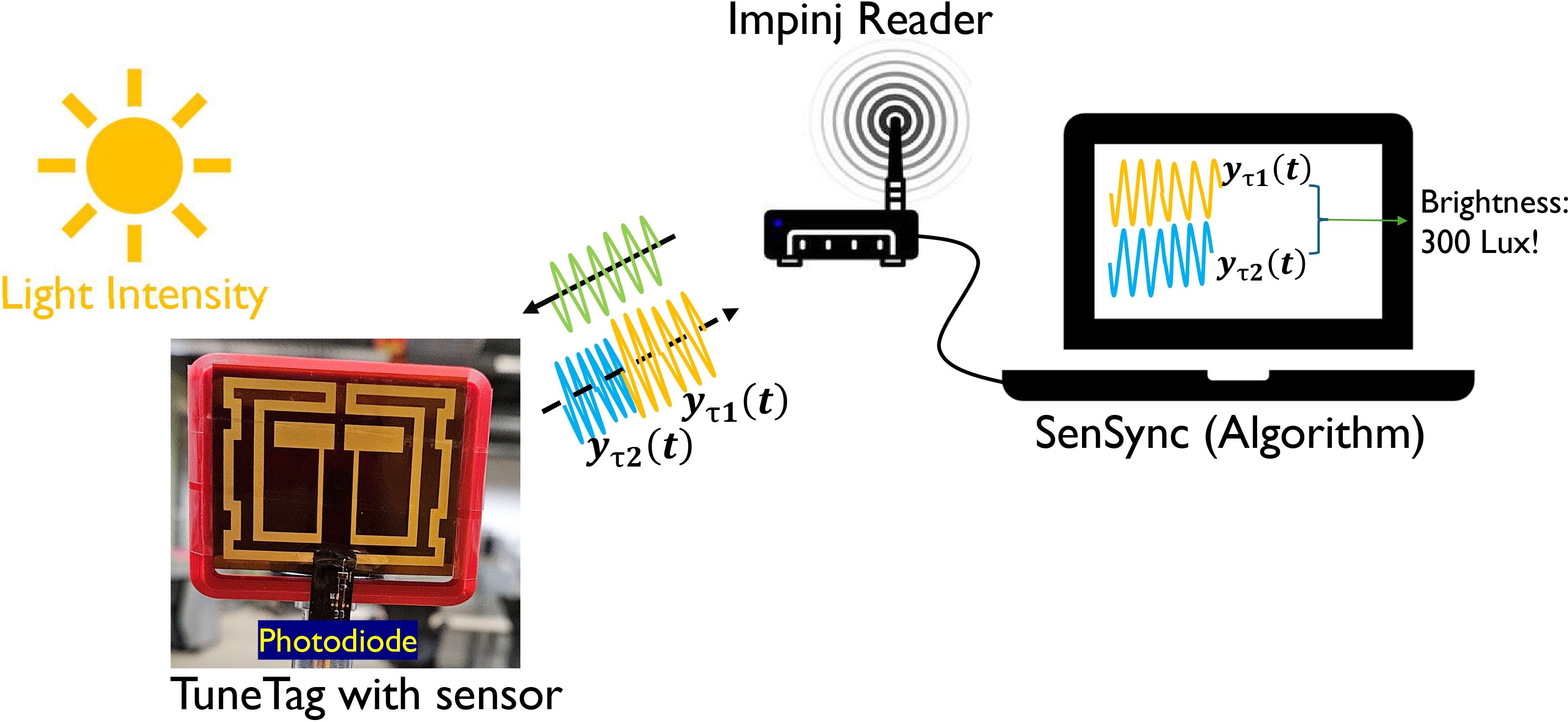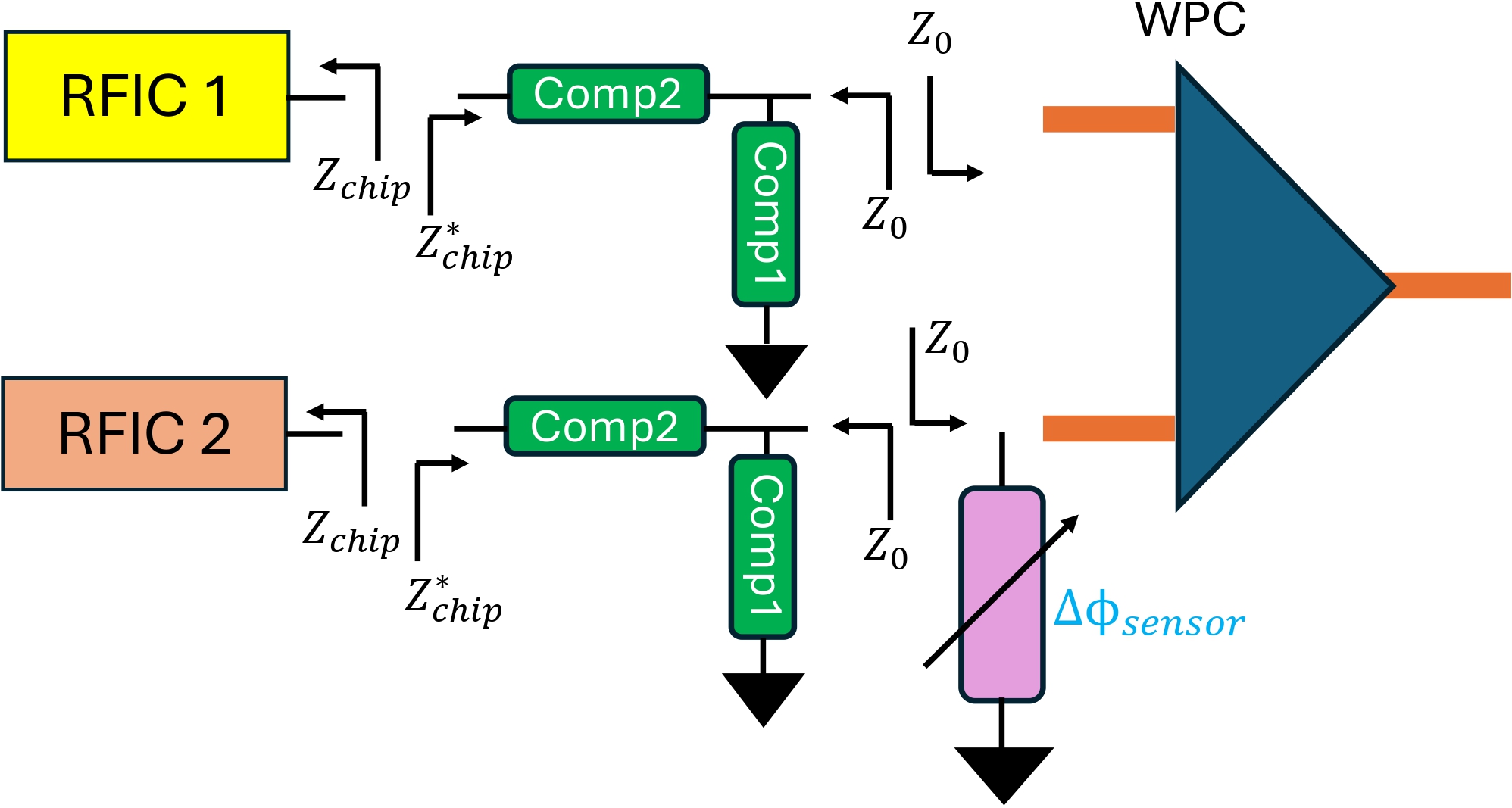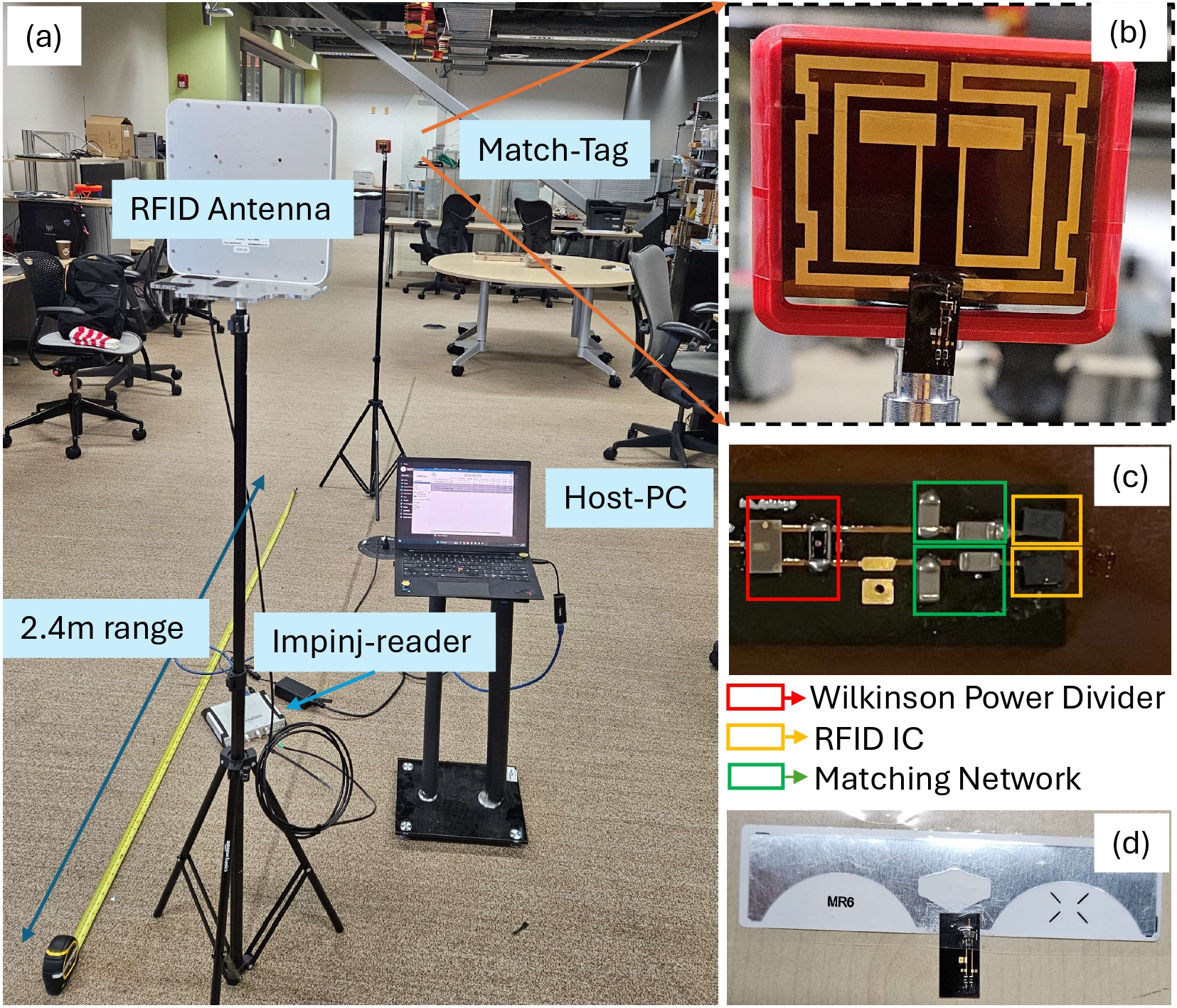|
|
While RFID has expanded to passive sensing, its adoption is limited by constrained range and challenges like data sparsity, temporal misalignment, phase ambiguity, and environmental interference. We introduce TuneTag, a passive sensing platform featuring a custom tag with a novel impedance matched antenna for improved precision and range, alongside a low-complexity algorithm compatible with commercial RFID readers and ICs. This algorithm corrects timing and phase inconsistencies, enabling robust differential sensing. Our evaluations demonstrate that TuneTag achieves a 5× improvement in sensing accuracy, a 2.4× extended range, and reduces latency to subsecond levels, yielding a 5× improvement in response time over State of the Art systems. The system features a graphical user interface (GUI) for near real-time sensor output display. We developed an Augmented Reality (AR) smartphone app that detects sensors and overlays live camera feeds with real-time data.

The TuneTag hardware is designed around the principle of impedance standardization to maximize energy transfer efficiency and enable robust differential sensing at long range. A key innovation lies in the two-step matching process. First, a passive matching network ensures conjugate matching between the RFID ICs (with highly reactive input impedances) and the 50 Ω transmission lines from the Wilkinson Power Combiner. This reduces reflection loss and improves both harvested energy and backscatter stability. Second, instead of relying on conventional conjugate-matched tag antennas, TuneTag employs a novel compact antenna structure that is itself matched to 50 Ω at its input, thereby maintaining uniform impedance across the system. This architecture eliminates the cascading mismatch losses typical in prior designs such as ZenseTag, yielding up to 6 dB RSSI improvement and a 2.4× range extension. Fabricated on a thin flexible polyimide substrate, the design balances low-cost scalability, compact form factor, and high performance

The evaluation of TuneTag demonstrates substantial improvements in range, stability, and sensing accuracy compared to prior RFID sensing platforms. Antenna characterization, performed through HFSS simulations and anechoic chamber measurements, confirmed proper tuning of the integrated antenna within the UHF RFID band once mounted on the PCB, despite standalone resonance shifts. Range tests showed a 2.4× extension over ZenseTag, with reliable operation up to 2.4 m even without matching components, highlighting the benefit of impedance standardization. Benchmarking of differential RSSI and phase revealed dramatic reductions in variability: standard deviation dropped from ~1 dB to <0.1 dB for RSSI and from ~0.18° to <0.02° for phase. These gains directly translate to more reliable sensor readouts in multipath-rich, dynamic environments. Further experiments with known resistive, capacitive, and inductive components validated TuneTag’s ability to accurately sense diverse impedance changes, with measured results aligning closely with simulations. Together, these evaluations confirm TuneTag’s robustness, scalability, and suitability for real-world battery-free sensing

|
|